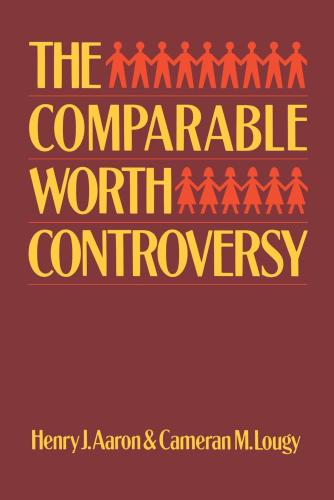Studies in this week’s Hutchins Roundup find that consumer spending has fallen sharply because of COVID-19, salary history bans have increased women’s earnings relative to men’s, and more.
Want to receive the Hutchins Roundup as an email? Sign up here to get it in your inbox every Thursday.
Consumer spending falls sharply because of COVID-19
Using data on daily credit, debit, and gift cards transactions, Abe Dunn, Kyle Hood, and Alexander Driessen of the Bureau of Economic Analysis find that overall consumer spending contracted 13% in March compared with February. The hospitality sector was the hardest hit. After the World Health Organization declared Covid-19 a pandemic on March 11, sales declined by 65% at restaurants and 80% at accommodations, they find. Sales for the food and beverage sector experienced an initial increase of 60%, as people rushed to grocery stores to stock up, but ended the month flat. Noting that the most stringent containment policies didn’t come into effect until March 21, the authors estimate that spending since then has declined by around 29% compared to the pre-March 11 period. The authors conclude that spending will continue to be depressed in April as pandemic containment policies remain in effect.
Salary history bans have narrowed the gender wage gap
Aiming to reduce the gender wage gap, several states and cities have recently banned employers from asking job applicants about their salary history during employment interviews. Benjamin Hansen from the University of Oregon and Drew McNichols from the University of California, San Diego, find that the adoption of salary history bans increased women’s earnings relative to men’s, and increased absolute earnings for women over 35, women with all of their children over 5, and recent hires. For example, in California—the largest state to have implemented a salary history ban— women over 35 and married women all of whose children over 5 saw a 2.3 and 4.7 percentage point increase, respectively, in their earnings relative to men as a result of the ban. The salary history ban also closed more than 20% of the gender earnings gap for those switching jobs. The authors reason that salary history bans affect the salaries of women who have faced earnings penalties in the past because of gender discrimination or discrimination against women with children.
the welfare cost of income volatility is exacerbated by the racial wealth gap
More than four in 10 people in the U.S. report not having money set aside for an emergency. The lack of savings is particularly pronounced for Black households, 55% of whom report not having enough money for an emergency compared to 38% of white households. Peter Ganong from the University of Chicago and coauthors study how consumption changes after an unexpected change in income, such as an involuntary job loss. Using monthly data on income, consumption, liquid assets, race, and ethnicity for 2 million households they find that a 10% change in income leads to a 2.3% change in consumption. The consumption of Black and Hispanic households is more sensitive to income shocks than that of white households. Nearly all of this difference can be accounted for by differences in liquid assets. The authors conclude that racial differences in consumption responses to changes in income are partly—and perhaps entirely—a result of the racial wealth gap, which is a product of historical barriers to wealth accumulation for Black and Hispanic households. Black and Hispanic households may be disproportionately impacted by the economic consequences of the COVID-19 pandemic, they say.
Chart of the week: Mortgage rates fall slightly
Quote of the week:
“We are also undertaking programs to provide stability to the financial system and to more directly support the flow of credit in the economy—for households, for businesses of all sizes, and for state and local governments. These programs benefit the economy by providing financing where it is not otherwise available. In addition, by serving as a backstop to key credit markets, the programs can improve market functioning by increasing the willingness of private lenders to extend credit. Many of these programs rely on emergency lending powers that are available only in very unusual circumstances, such as those we find ourselves in today. We are deploying these lending powers to an unprecedented extent, enabled in large part by the financial backing and support from Congress and the Treasury. We will continue to use these powers forcefully, proactively, and aggressively until we are confident that we are solidly on the road to recovery,” says Jerome Powell, Chair of the Federal Reserve Board of Governors.
“I would stress that these are lending powers, and not spending powers. The Fed cannot grant money to particular beneficiaries. We can only make loans to solvent entities with the expectation that the loans will be repaid. Many borrowers will benefit from our programs, as will the overall economy. But for many others, getting a loan that may be difficult to repay may not be the answer. In these cases, direct fiscal support may be needed. Elected officials have the power to tax and spend and to make decisions about where we, as a society, should direct our collective resources. The CARES Act and other legislation provide direct help to people, businesses, and communities. This direct support can make a critical difference, not just in helping families and businesses in a time of need, but also in limiting long-lasting damage to our economy.”










Commentary
Hutchins Roundup: Consumer spending, salary history bans, and more.
April 30, 2020